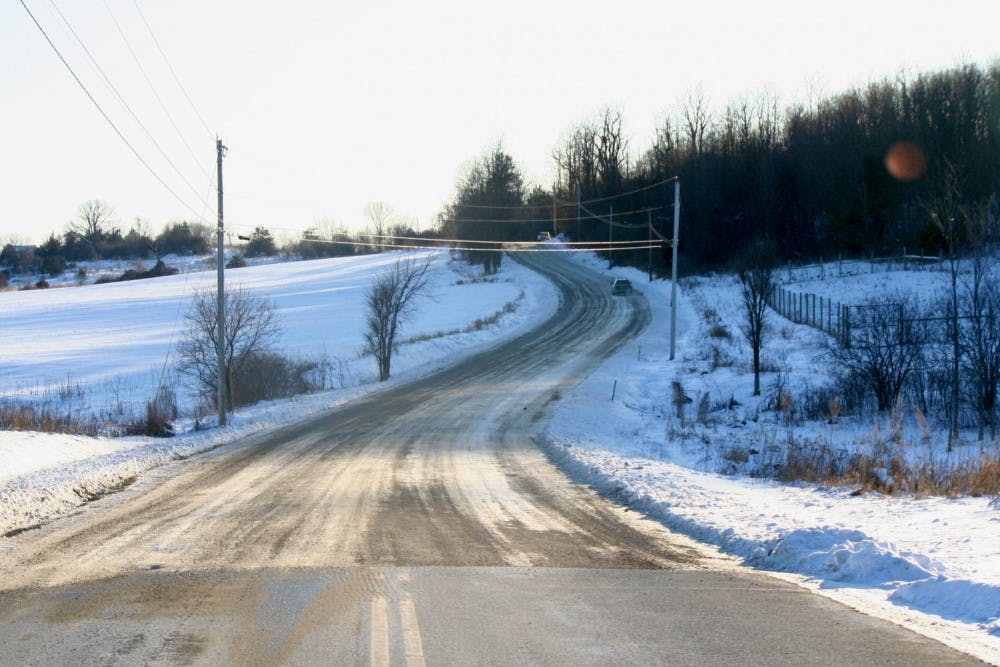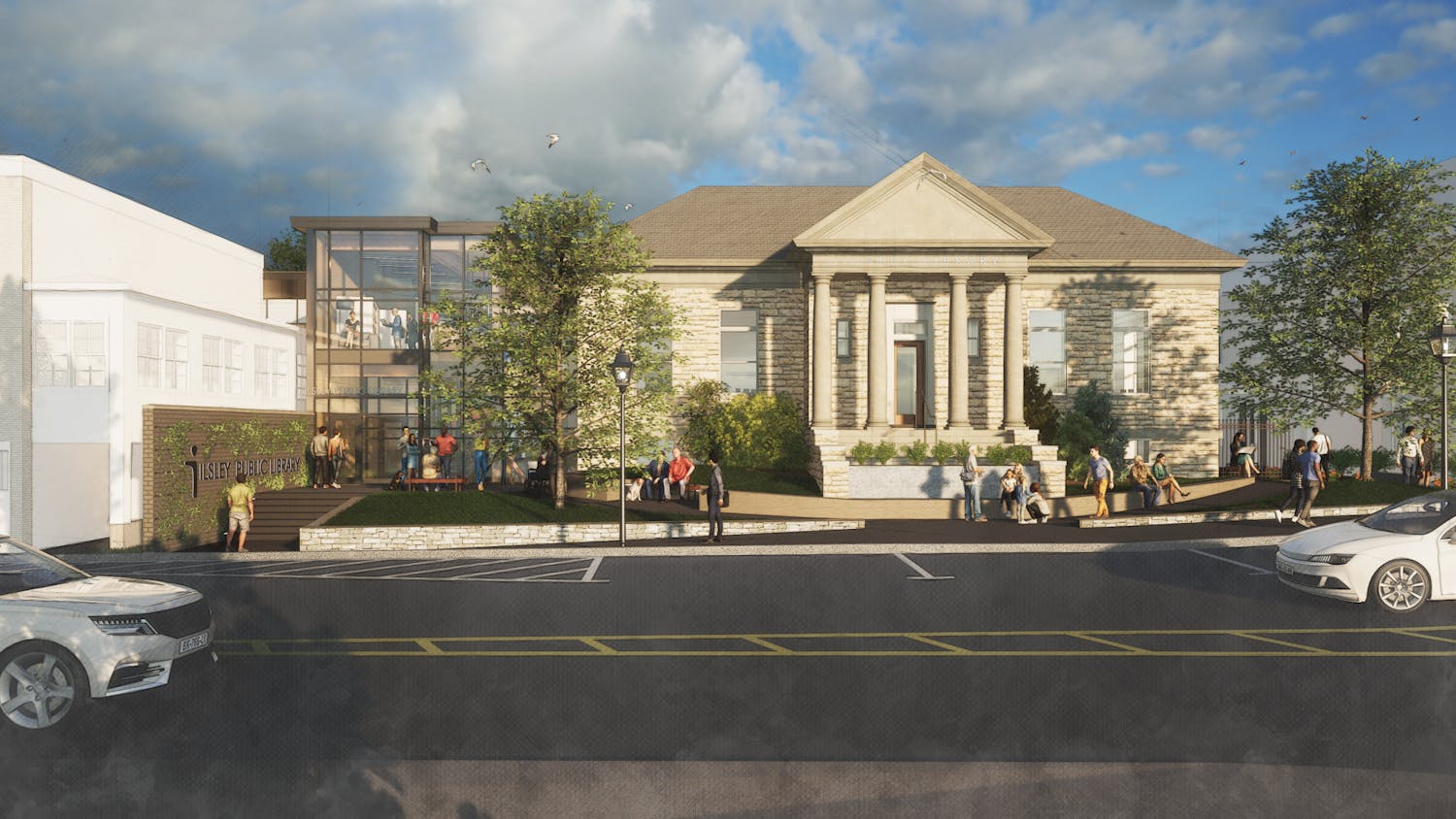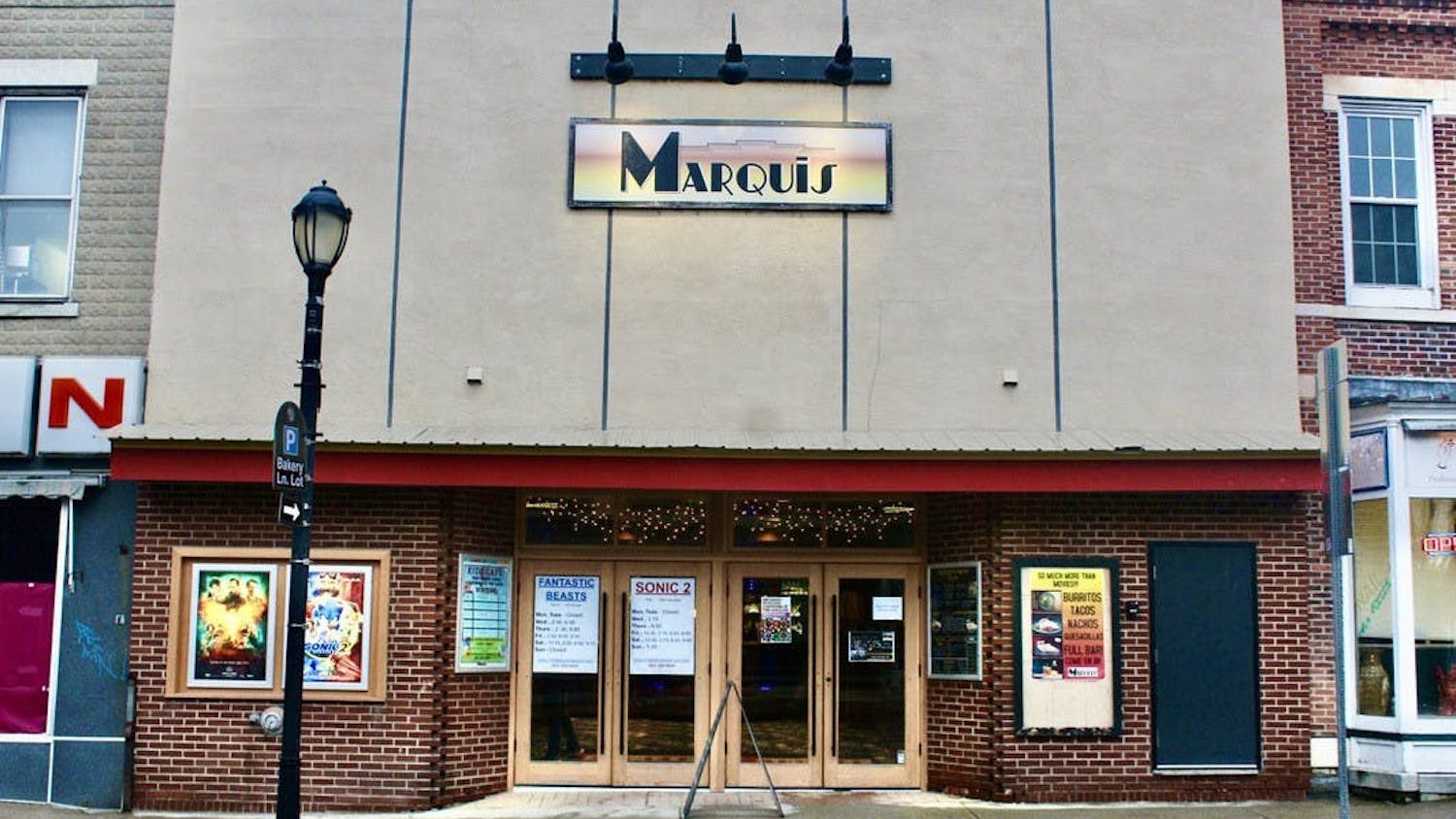Middlebury College is developing a new five megawatt solar farm south of campus in an effort to reach 100% renewable energy usage. The solar installation, which will cost between 8 and $9 million, is being built in collaboration with Encore Renewables, a Burlington-based energy services company, and is expected to be completed during summer of 2020.
Encore representatives forecasted the solar project to meet 30% of the college’s electrical usage in a presentation to Middlebury’s Selectboard last November. Currently, about 50% of the college’s electricity — 22 million kilowatt-hours annually — is generated from fully renewable sources (as opposed to fossil fuels).
Some residents have praised the project, but it has not come without its critics, most of whom take issue with the proposed location. The finalized site is a field located 1,000 feet off South Street Extension, which the college chose after deeming several other sites unfit for the size and complexity of the project.
The Middlebury Planning Commission, in collaboration with Middlebury College, proposed the current site off of South St. Extension during an informational meeting on Oct. 24, inciting objections from attendees. A number of town citizens also showed up to a selectboard meeting on Oct. 29 to express concern regarding the finalized location. The Middlebury Planning Commission, in collaboration with Middlebury College, approved the current site off of South St. Extension on October 24. Dec. 5. On Dec. 10, resident Leslie Kameny presented a petition signed by 93 people in the surrounding community to the selectboard hoping the decision to endorse the project would be reconsidered.
The selectboard met again to deliberate over the project on Dec. 17, voting 5–2 to approve the South St. Extension location. David Provost, the college’s executive vice president for administration and finance, explained in a Addison Independent article that the college is committed to collaborating with the town and would work with Green Mountain Power on an energy storage system to support nearby Porter Hospital. Excess solar energy generated would supply power to the hospital in emergency circumstances. The plan has been sent to the Vermont Public Utilities Commission for review.
Will Amidon, a geology professor who has been heavily involved in the logistics of the project, is among the site’s critics. “I very much support the solar array but I did oppose the location because I felt like it was located in a gorgeous scenic recreation corridor in a relatively undeveloped part of town,” he said last week. When asked about a better location, Amidon mentioned that he would have preferred a location west of Bicentennial Hall. The plans include a required vegetation screen to reduce the direct visual impact of the installation.
Encore employee Derrick Moretz explained that the company initially surveyed “under-utilized” locations like rooftops, parking lots and campus brownfields for the farm. Ultimately, selectboard members voted in favor of sites off South St. Extension since the former locations were deemed insufficient for the scale of the project and the quantity of energy that would be produced.
Other local residents approve of the plans surrounding the construction of the solar farm. Steve Maier, a Middlebury resident and chair of the Climate Economy Action Center of Addison County (CEAC), is generally supportive.
“I think the project will be a significant positive improvement to the aesthetic sense of the area involved,” Maier said. “I find renewable energy projects to be beautiful.”
Maier acknowledged the plan’s imperfections, but concluded that the pros outweigh the cons. “There may be small disruptions for nearby residents, but the benefits to the broader community are much more significant,” he said.
Several others have expressed frustration with a lack of openness from the project’s planners. Food Studies Professor and Middlebury resident Molly Anderson explained that there were limited opportunities for residents to discuss the solar farm’s plan.
“My biggest concerns are about transparency and lack of anything resembling deliberation,” Anderson wrote. “There was one selectboard meeting that allowed public input, but the decision had basically been made before that (and had gone to the Planning Commission already).”
Anderson also considered town-gown relations and potential opportunities, pointing out that the college could have framed the solar farm as a part of a wider strategy to contribute to a town energy plan.
Philosophy Professor and Middlebury Selectman Victor Nuovo, who voted against the project, argued that the decision should have been postponed and did not believe that the entire community had been able to adequately engage in the project. Another critic, Selectman Farhad Khan, expressed concern that the college has not properly responded to the worries of nearby residents.
This is a multi-part story on Middlebury College’s proposed solar array farm. Town meeting project minutes and meeting archives can be found at townofmiddlebury.org
Jack Summersby is a local editor.




